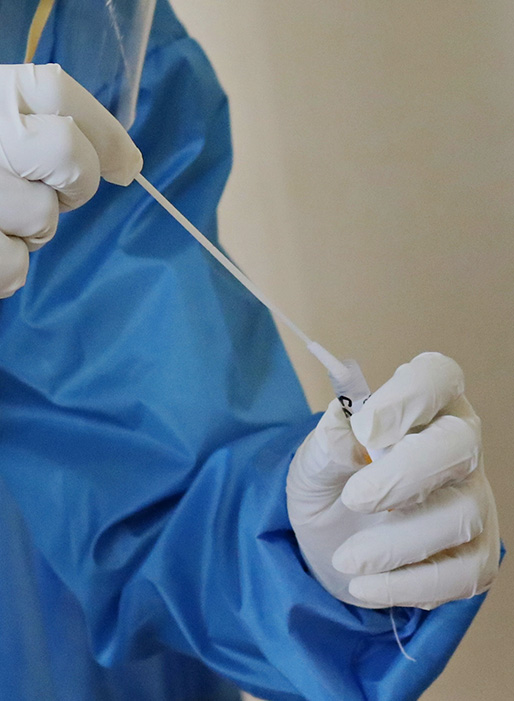Evacuations from Israel and High-Risk Locations Call +44 (0)1202 308810 or Contact Us →

Deadly Leptospirosis Outbreak Strikes Kerala, India
6 Sep 2018
42 people have been killed by an outbreak of leptospirosis or ‘rat fever’ in the southern Indian state of Kerala. The ongoing outbreak, since 01 August, has led to 1,006 confirmed cases 1,913 suspected cases. The excessive number of leptospirosis cases has been linked to the worse flooding seen in Kerala in at least a hundred years over the past few months. By 30 August, 483 monsoon deaths were reported by authorities in the state. Outbreaks of the diseases have been reported in five of the 13 districts which were hit by flooding.
Key Points
- 42 people have been killed during a Leptospirosis, or ‘rat fever’ outbreak in Kerala, India.
- The outbreak comes on the back of monsoon flooding in Kerala which has taken the lives of nearly 500 people over the past few months.
- Travellers to this area of India are advised to employ enhanced hygiene measures.
Situational Summary
Health: 42 people have been killed by an outbreak of leptospirosis or ‘rat fever’ in the southern Indian state of Kerala. The ongoing outbreak, since 01 August, has led to 1,006 confirmed cases 1,913 suspected cases. The excessive number of leptospirosis cases has been linked to the worse flooding seen in Kerala in at least a hundred years over the past few months. By 30 August, 483 monsoon deaths were reported by authorities in the state. Outbreaks of the diseases have been reported in five of the 13 districts which were hit by flooding.
Despite the high number of cases occurring in a relatively short space of time, health officials in the state said there was no immediate cause for alarm and the situation was under control. Though a health alert has been issued.
What is Leptospirosis?
Leptospirosis is a bacterial infection caused by Leptospira interrogans and has many different strains. The disease can occur worldwide in both animals and humans but is more common in tropical climates and those subjected to flooding (such as Kerala in India). Outbreaks have been reported in multiple locations in 2018, including by Israel and Philippines. The disease is mainly carried by rodents especially rats but also other small mammals.
Contraction
Humans can contract the disease when broken skin or mucous membranes of eyes/nose/mouth comes into contact with water, moist soil, or vegetation infected by animal urine. Farmers, veterinarians, sewage workers, and fish farmers are at a higher occupational risk of leptospirosis contraction. For travellers, those engaged in water sport activities, such as kayaking, are at a greater risk of contracting the disease, especially after a flood or heavy rains.
The incubation period is generally five to 14 days.
Symptoms
Most people who contract leptospirosis demonstrate no or only mild symptoms. For those with symptoms, the disease can last from a few days to a few weeks. Symptoms are wide-ranging and can include:
- Sudden onset of fever and chills
- A headache and muscle/joint pains
- Red eyes
- Vomiting and diarrhoea
These symptoms may develop into more serious conditions, including:
- Jaundice
- Bleeding abnormalities
- Kidney and/or liver failure.
The recovery times of those untreated may be several months.
What is Being Done?
Doctors have reportedly stated that they expected the outbreak and were prepared for it. The government has asked everyone who came into contact with flood waters to take medication – doxycycline – as a precautionary measure to avoid an epidemic. It has been reported that the majority of deaths had occurred in those who had failed to take this medication as directed.
SECURITY ADVICE
HealthModeratePrevention
The best way to deal with leptospirosis contraction is through prevention. At present, there is no human vaccine for leptospirosis. All travellers should seek medical advice at least six weeks before travelling to understand if any vaccinations should be taken for travel to India. The below steps should be followed to limit the potential of leptospirosis contraction:
Treatment
The recovery times of those untreated may be several months. Antibiotics help to shorten the illness if given early. Supportive treatment with intensive care is required to manage liver and kidney failure.
Travellers should note that leptospirosis and other water- and animal-borne diseases have been reported across India and they increase in likelihood around the monsoon season when medical and public services are most stretched.
For most locations in India, Solace Global would advise clients to employ the minimum of a security trained or fully vetted driver. It may also be advisable to employ a close protection officer, dependent on location. Solace Global would also advise clients to use travel tracking technology alongside an intelligence feed. This enables a traveller to inform others should an emergency occur and allows them to stay updated on any security-related incident.